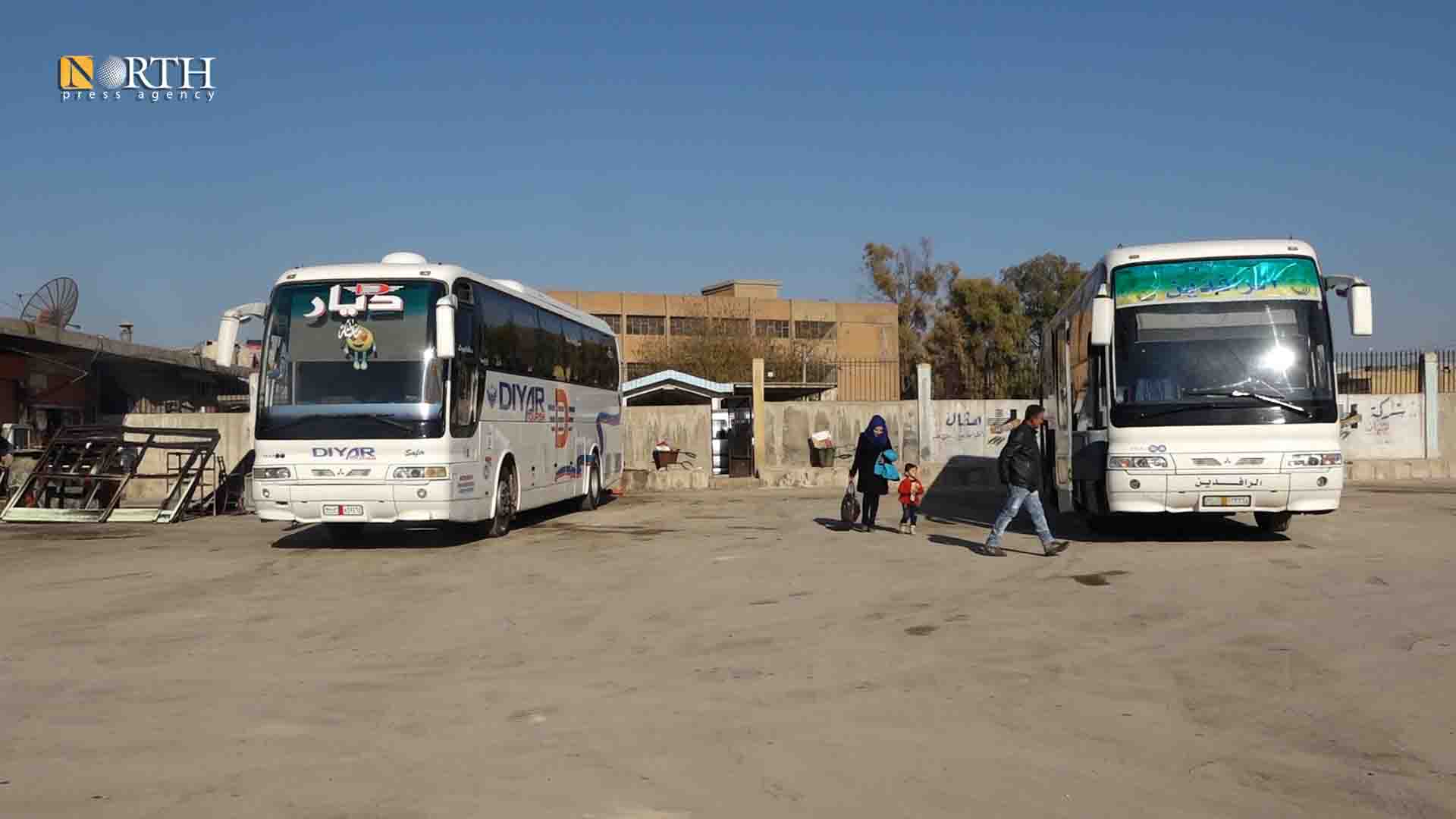QAMISHLI, Syria (North Press) – Students and patients from the Jazira Region who go to Damascus and other Syrian government areas face fears, difficulties, and high costs to reach their universities or hospitals for treatment.
Security concerns have recently added new difficulties, in addition to the high costs, the many hardships, and the long duration of road trips.
Qamishli Airport is the only airport for the people of the Jazira Region to reach other Syrian governorates, in addition to several bus transportation companies operating on land routes since they were reopened nearly three years ago.
The only land road that connects northeastern Syria with Damascus was closed and reopened in 2017, but the risks of armed attacks have continued to increase as of late.
Student exams
Maya Korgis, a law student at Tishreen University in Latakia, said her family would not allow her to travel by land to take her exams on January 24.
She stated that traveling by road transport companies was easier and cheaper.
“We used to arrive directly from Qamishli to Latakia without the need to stay a night in other cities, while before that we were booking a flight card, as Latakia airport was open to civilians,” she added.
In 2017, all civilian flights to Latakia airport were closed after it turned into a Russian military base.
Korgis faces difficulties in obtaining an airline card to Damascus, especially with the high cost of obtaining a ticket for Syrian Airlines and Cham Wings Company – about 180,000 Syrian pounds (SYP).
She prefers to travel by Ilyushin, which will cost her about 20,000 SYP.
“Despite the difficulty in obtaining a reservation for an Ilyushin plane, and its disadvantages in terms of congestion, difficulty breathing, and fears of infection with coronavirus, my family is afraid of sending me by land because of the recent attacks,” she said.
Attacks
In December, a bus belonging to the Izla transportation company was attacked by an unknown group while it was heading to Damascus.
The attack resulted in injuries among the travelers, after which they were transferred to Salamiyah hospital.
Before New Year, the pro-government SANA agency said that 28 travelers were killed and eight others were injured in the Deir ez-Zor attack.
The next day, the Islamic State (ISIS) claimed responsibility for killing 40 government soldiers in an attack on a bus for government forces in Deir ez-Zor countryside.
Unsafe roads
Although the distance between the city of Qamishli and Damascus is about 700 km, the bus journey currently takes about 20 hours, and it may reach 24 hours or more depending on road conditions and stopping at various checkpoints and crossings.
The price of the bus ticket is about 14,000 SYP and the passenger must pass more than 20 checkpoints.
Driver Hussein Yassin said that problems have increased on the road in the last two months, forcing them to stop at night at the crossings between the Autonomous Administration of North and East Syria (AANES), and Syrian government areas to complete their journey in the morning.
He added that the presence of gunmen on the road has increased recently, and that most attacks happen at night.
He stated that transport companies reduced the number of their trips a month ago.
Sick appointments
In light of these difficult and dangerous conditions, most students, workers, and employees traveling between Qamishli and Damascus prefer to travel by air.
The cost of the ticket, through offices and brokers, reaches more than 200,000 SYP, in addition to the necessity of booking at least three weeks in advance, and it is not possible to book tickets during holidays and events.
Fatima Ahmed, who receives medical treatment in Damascus, said that she has to travel by land, as her treatment dates are fixed and it is difficult to obtain a plane reservation in a short time.
“I cannot wait to secure a plane ticket, as I will miss the doctor’s appointment. I am forced to travel via the land route despite my constant fear,” she added.

